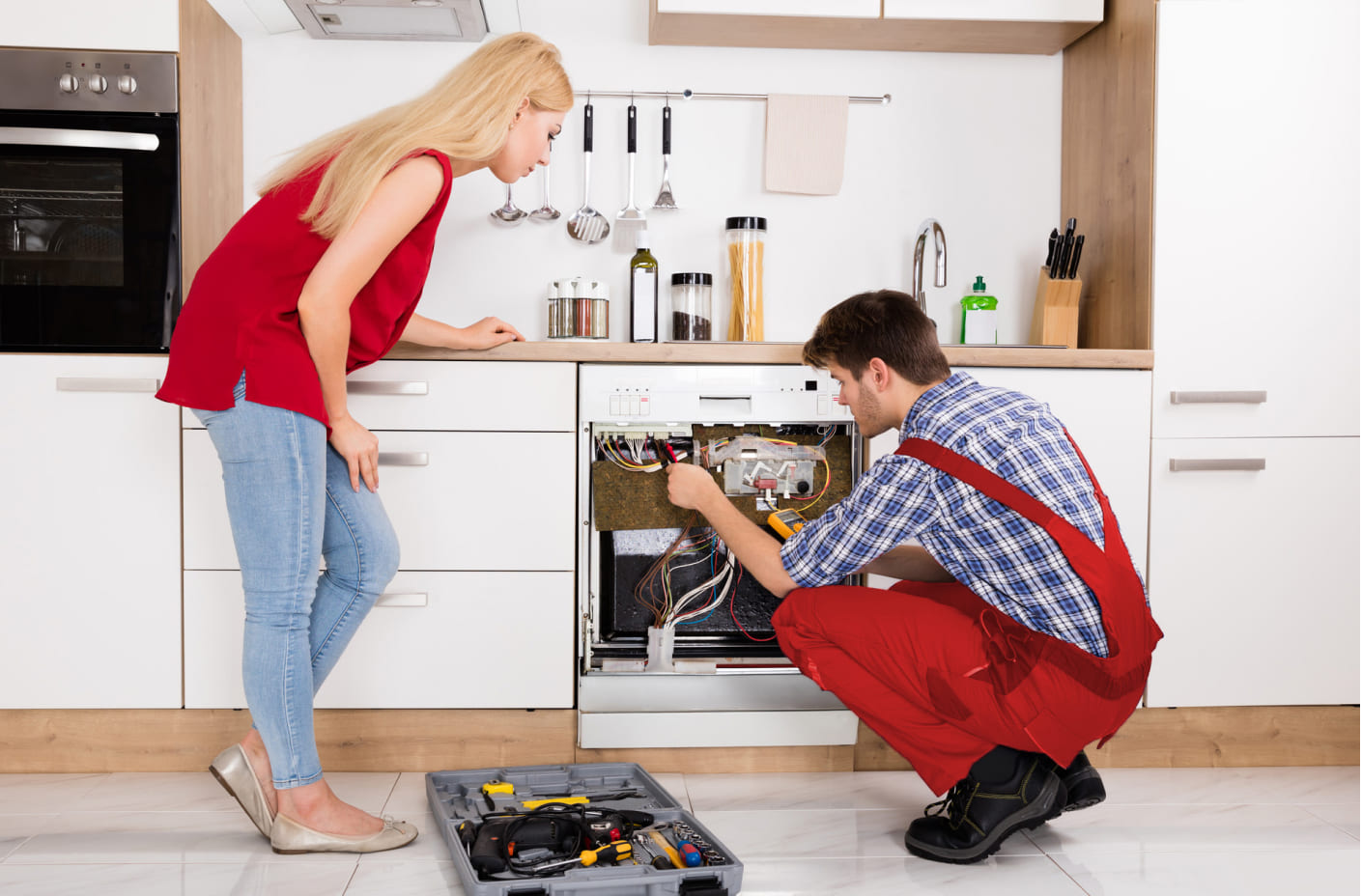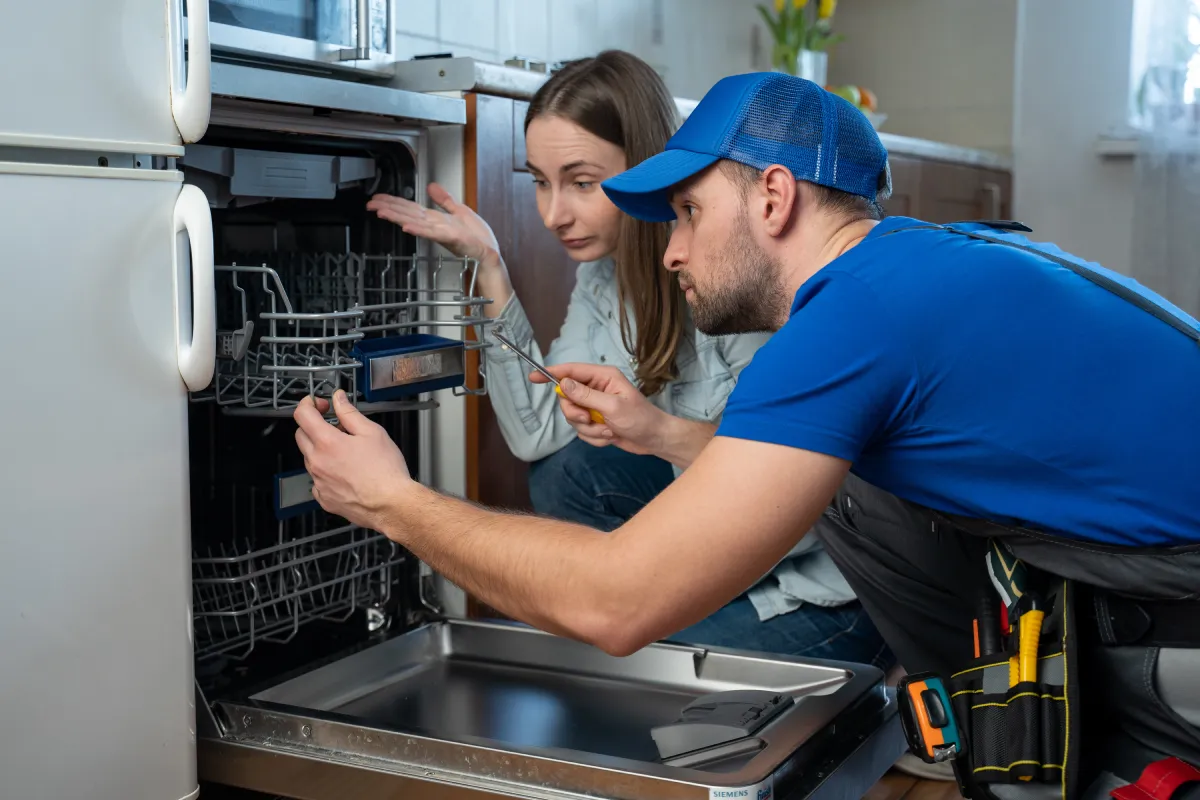The Ultimate Overview to Comprehending Device Repair Work in your home
When your refrigerator quits cooling down or your stove declines to warm, it can really feel frustrating. Comprehending home appliance repair at home can conserve you time and cash. You'll discover to acknowledge signs and symptoms, make use of necessary devices, and follow a systematic troubleshooting process. However before you start, there are critical security precautions you need to consider. What are the most typical issues, and exactly how can you repair them? Let's explore the essentials.
Usual Home Appliance Troubles and Their Signs and symptoms
When your devices start acting up, it's crucial to identify the indicators at an early stage. Neglecting them can bring about bigger problems and expensive fixings. If your fridge isn't cooling appropriately, you might notice warm spots or condensation forming. This can indicate a stopping working compressor or a blocked vent.Your dishwasher might reveal troubles via dirty recipes or uncommon noises throughout cycles. If you listen to grinding or clanking, it's time to investigate.A washing device that won't spin or drain pipes can leave you with soggy laundry, suggesting a stopped up drain or a malfunctioning pump.Lastly, if your stove's temperature level appears off or it takes for life to pre-heat, you could be dealing with a faulty thermostat. By remaining alert to these symptoms, you can deal with problems prior to they escalate into significant repair services.
Important Devices for Device Repair
When you're taking on appliance repair services in the house, having the right tools is important. Fundamental hand tools like screwdrivers and pliers will certainly aid you disassemble and deal with numerous home appliances, while electrical testing devices assure you're working safely with wiring. Allow's review what you need to start on your repair journey.
Basic Hand Tools
Having the right tools is vital for effective appliance repair work at home. Beginning with a dependable screwdriver collection, consisting of both flathead and Phillips types, as screws are usual in appliance assembly. Pliers are additionally important; they aid with gripping, twisting, and cutting cords or little parts. A pair of needle-nose pliers can reach tight areas conveniently. You'll need a great adjustable wrench for tightening up or loosening nuts and bolts. An energy blade is handy for cutting via product packaging or insulation. Do not neglect a strong workbench or surface to securely organize your devices and components. With these basic hand devices, you'll be well-prepared to deal with most device repair work that come your way.
Electric Testing Tools
Together with basic hand devices, electric testing gadgets play an important role in appliance fixing. These devices aid you detect electrical issues and warranty home appliances operate securely. A multimeter is important; it measures voltage, current, and resistance, permitting you to identify problems swiftly. A non-contact voltage tester is an additional must-have, letting you identify online cables without making direct call, enhancing your security. Secure meters are terrific for determining current circulation in cords without separating them, conserving you time and initiative. Additionally, circuit testers can rapidly examine if electrical outlets are functioning effectively. By utilizing these tools, you'll streamline your troubleshooting process and improve your fixing abilities, making home appliance maintenance a whole lot much easier.
Step-by-Step Guide to Diagnosing Home Appliance Issues
When your device breaks down, it can be discouraging, but diagnosing the concern does not have to be overwhelming. You'll discover to recognize common problems and use reliable fixing methods. Let's walk with the steps to get your home appliance back in working order.
Common Home Appliance Issues

Repairing Methods Discussed

Fixing Significant Kitchen Home Appliances: A Closer Look
Have you ever questioned just how to deal with common problems with your cooking area appliances? Repairing major cooking area appliances like refrigerators, ovens, and dishwashers can be much easier than you believe. Start by determining the trouble-- whether it's a fridge not cooling down or an oven that will not warm. Often, a straightforward reset or inspecting the source of power can fix the issue.For fridges, tidy the condenser coils and check the door seals. If your stove's not heating, evaluate the home heating element and thermostat. Dishwashing machines might just need a clean filter or a reset to get them back at work. Always unplug the home appliance prior to diving right into repairs to ensure your safety.Don' t forget to speak with the customer handbook for certain troubleshooting ideas associated with your design. With a little perseverance and the right devices, you can with confidence deal with home appliance repair services and conserve cash at the same time!

Fixing Washing Devices: Tips and Techniques
When your washing devices begin breaking down, it can really feel overwhelming, but repairing them doesn't need to be a hassle. Start by examining the power supply. Verify the home appliance is connected in and the outlet is working. Next, evaluate the door or cover switch; a faulty button can stop the device from operating.For washers, if it's not rotating, check for out of balance tons. Rearranging the clothing may fix the concern. If your dryer isn't home heating, tidy the dust filter and examine the vent for blockages.Listen for unusual noises; they can indicate a trouble. If your device is dripping, inspect the hose pipes for cracks or loosened links. Paper any kind of error codes displayed on digital screens, as they can guide you in determining the issue. Lastly, seek advice from the individual manual for specific repairing ideas associated with your model.
Security Preventative Measures to Take Throughout Repair works
Prior to you begin any device fixings, it's vital to focus on safety to prevent crashes or injuries. Initially, unplug the device or switch off the breaker to assure no power reaches it while you work. Use shielded tools to minimize the danger of electrical shock. Wear safety and security goggles and handwear covers to shield on your own from sharp edges or debris (Dependable Refrigeration & Appliance Repair Service Washer repair near me).Make certain your work space is clean and well-lit, so you can see what you're doing. Keep youngsters and family pets far from the location to avoid distractions and prospective hazards. If you're dealing with gas home appliances, be additional careful; check for leakages prior to proceeding.Take your time, and do not hurry with fixings. If you really feel uncertain about any step, it's far better to pause and research study than to think. Adhering to these precautions will assist produce a much safer atmosphere for your DIY device repair work project
When to Call a Professional for Assistance
Exactly how do you understand if it's time to contact an expert for device repairs? If you've tried basic troubleshooting without success, it's a clear indicator. If your appliance still won't begin or reveals uncommon sounds after resetting it, do not wait to seek expert help.When you notice leakages, smoke, or shedding smells, focus on security and call a professional promptly. These issues can result in more substantial damages or pose risks to your home.Also, if your appliance is under warranty, contacting a professional is frequently the most effective course. They can guarantee that fixings won't nullify your service warranty, saving you cash in the long run.Finally, if you're unclear or uneasy with complicated repairs, it's important to leave it to the professionals. Bear in mind, dealing with difficult problems without the ideal know-how can lead to expensive blunders. Count on a specialist when click here doubtful!
Often Asked Concerns
Just How Can I Stop Appliance Problems in the Future?
To protect against home appliance issues in the future, you must do routine maintenance, check for damage, tidy filters, and avoid overloading. Staying aggressive will certainly help extend their life-span and maintain them running smoothly.
What Are one of the most Usual Do It Yourself Home Appliance Repair Mistakes?
You could neglect safety and security precautions, avoid troubleshooting actions, or use inaccurate devices when trying DIY home appliance fixings. Hurrying the procedure or ignoring manufacturer guidelines can lead to more considerable issues and expensive mistakes. Keep individual and informed!
How Do I Know if a Part Requirements Substitute?
You can inform if a part needs substitute by looking for unusual sounds, leakages, or irregular performance. If the home appliance struggles to operate correctly or shows noticeable damages, it's most likely time for a substitute.
Can I Utilize Generic Parts for Appliance Services?
Yes, you can make use of common components for home appliance fixings, but identify they work - Dependable Refrigeration & Appliance Repair Service Washer repair near me. Generic parts could save you cash, however they can impact performance or durability, so evaluate your options meticulously prior to making a choice
What Warranties Cover Appliance Repair Works?
A lot of device warranties cover repair work for making defects, but they often exclude damage from misuse. Check your service warranty terms meticulously, as some may need making use of certified service technicians and original parts for coverage to stay legitimate.